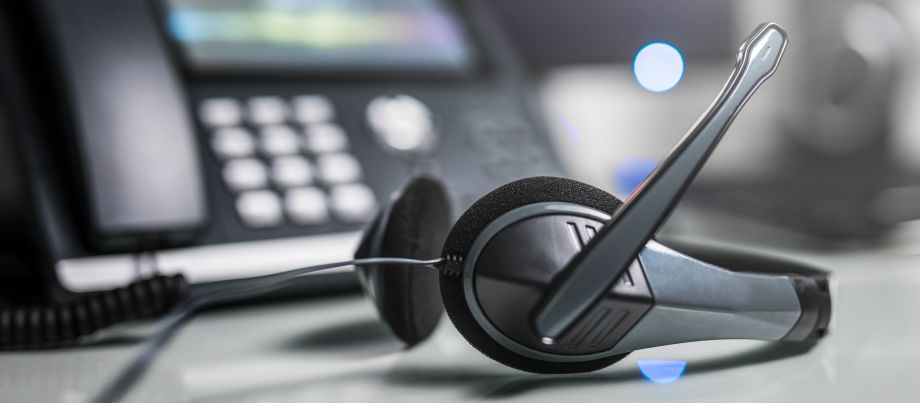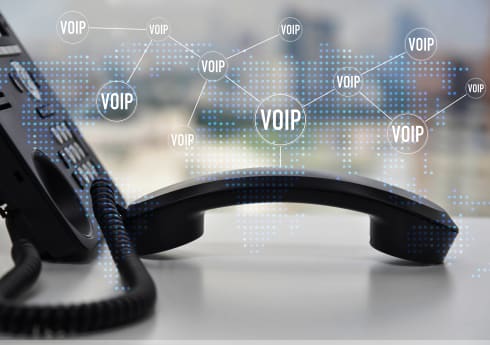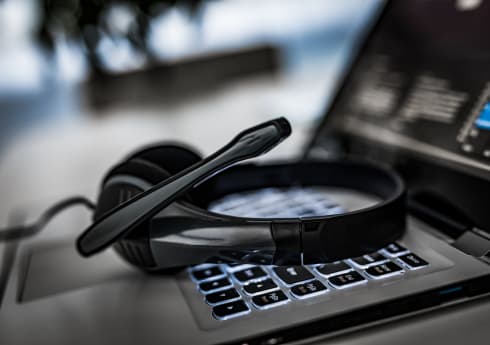What Is A SIP Phone And How Do They Work?
Session Initiation Protocol (SIP) was made in the 1990s. But it’s really in the past few years that SIP has boomed in business telecoms. These techy phones could be a way for businesses to save money and future- proof their communications.
But what is SIP and who should get it? These phones could be your calling. Here’s everything you need to know about SIP phone systems and the benefits to businesses.

What is a SIP Phone?
SIP stands for Session Initiation Protocol. SIP is a way of controlling and signalling communications. It’s mostly used by cloud based telephones to make and take calls over the internet. These calls can be video or voice.
Regular users of SIP don’t have to know the ins and outs of how it all works. All you need to know is that SIP is a protocol that works behind the scenes to keep internet phone calls up and running.
How does a SIP phone work?
SIP is the foundation of internet phone calls. It often starts and ends every call you make with VoIP (Voice over Internet Protocol). The landline phones and classic office phones work differently. These are part of a PBX system that sends signals over the wires.
SIP lets phones work by sending signals over the internet instead. That can reduce your costs and reduce the amount of hardware you need.
Should you get a SIP phone system?
Many businesses would benefit from making the switch to SIP. Businesses should consider making the switch in preparation for the ISDN switch off. In 2025, regular phone lines will be switched off. That’s a big hit to any business that uses traditional office phones.
Best reasons to get SIP phones
- Make the switch now to avoid the rush in 2025
- Speed up communications over the internet
- Reduce the costs of your telecoms system
Best Features of SIP Phones
Sure, getting these phones can futureproof your business and cut costs. But what are you getting for your trouble? These are the top benefits of using SIP landlines and phones.
- Call recording: record calls at the click of a button
- Custom call ID: select your number as a location close to customers even if you’re on the other side of the country
- Use on your phone and desktop: wave farewell to the outdated office phone. Employees can make calls on all of their devices wherever they are.
How is SIP different from VoIP?
VoIP (Voice over Internet Protocol) is a way of making phone and video calls over the internet instead of ISDN lines. It’s really popular! Most of the time, SIP is thrown into the mix when people talk about VoIP.
But SIP and VoIP don’t mean the exact same thing. SIP is the foundation that can help VoIP work. Not all VoIP systems use SIP, although it is one of the most common types used to make those internet phone calls happen.
Since SIP is so common, you can mostly use SIP and VoIP synonymously without worry. You’ll hear a lot of terms thrown around (cloud based phones, internet phones, etc.) but most of it means the exact same thing. Welcome to the world of telecoms jargon!
Types of SIP phones you need to know about
Not every phone is the same! There are plenty of different products out there for every business and job. These phone types will only work over the internet, not PBX like your regular ol’ office phone.
When you’re choosing phones for your company, decide if you want to have actual hardware phones at desks or not. There are two types you need to know. These phones are usually either hard or soft phones. Basically, you’ll either have hardware or you won’t.
Hardware: SIP desk phones
A SIP phone might look similar to a traditional office phone, but they’re not the same thing. Just because it looks like a duck and quacks like one, doesn’t mean it’s a duck.
This type of phone is set up by linking it to your Ethernet cables. Many major telecoms providers offer this type. These hard phones will typically have more buttons than the office types you’re used to. The desk phones are connected to your Wi-Fi, so using the internet for voice and video calls has never been easier.
Sometimes, you’ll see phones with screens built in. These can look pretty fancy! But they have their uses too. Having a display screen means you can easily select which features you want to use on the phone.

Soft phones: SIP VoIP apps
The major downside of desk phones is they can’t help you if you’re outside the office. Since remote and hybrid working is booming, telecoms have adapted.
These phones are software available on desktops, laptops, smartphones, and often tablets.
Once your VoIP provider has set you up with the software, you’re pretty much good to go. It’s best to invest in some headsets otherwise you’re setting yourself up for a poor sound experience.
Since the soft phones can be used on all kinds of devices as long as you have internet, they’re excellent for businesses who have employees spread across different offices or work from home.

How to get a SIP phone system
Getting snazzy phones for your business is easy, we promise. The fastest way is to compare providers, choose your phones, and get a quote. After that, the telecoms company helps to set you up and get things running.
How quickly your new SIP system is set up and how much it costs depends on what options you choose. Keep in mind software is cheaper than hardware, but you can always combine the two if you want the best of both worlds. Check out our comparison page to dial into your quotes.



